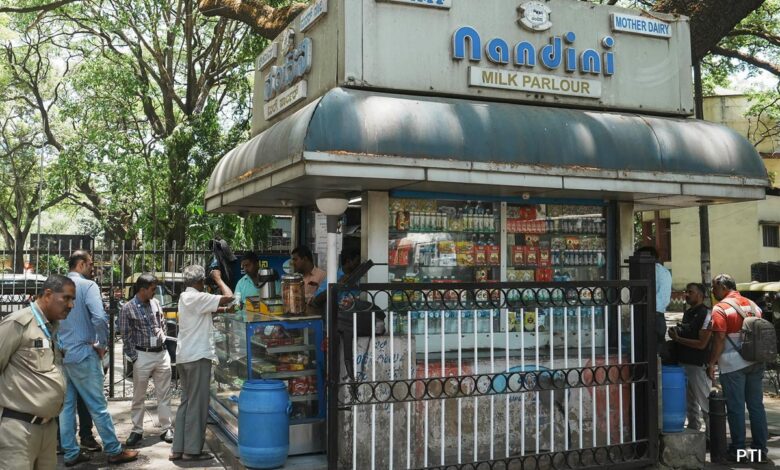
Amid controversy over the use of animal fat in ghee at the Tirupati temple in Andhra Pradesh, the Karnataka government on Friday issued a directive mandating the use of Nandini brand ghee in all 34,000 temples that come under the state’s temple management body.
The Karnataka government’s new directive requires that all temples under its jurisdiction use only Nandini ghee, produced by the Karnataka Milk Federation (KMF), for temple rituals, including lighting lamps, preparing ‘prasada’, and in the ‘Dasoha Bhavans’ – places where devotees are served food. The official circular stressed that temple staff must ensure that the quality of ‘prasada’ is never compromised.
“In all the notified temples under the Religious Endowment Department of Karnataka State, it has been directed to use only Nandini Ghee for services, lamps, and preparation of all types of prasada and in Dasoha Bhavan. It has been suggested to maintain the quality in the prasada prepared in the temples,” the circular reads.
This directive comes in the wake of a larger controversy surrounding the alleged use of animal fat in ghee in the preparation of laddoos at the famous Sri Venkateswara Swamy Temple in Tirupati, managed by the Tirumala Tirupati Devasthanams (TTD). The controversy first erupted earlier this week when Andhra Pradesh Chief Minister N Chandrababu Naidu raised concerns over the quality of the ghee used at the temple, claiming that samples had tested positive for lard and other animal fats.
The Tirupati temple kitchen, which produces around 3 lakh laddoos daily, requires enormous quantities of ingredients, including 1,400 kg of ghee, along with other essentials like cashew nuts, raisins, cardamoms, gram flour, and sugar. The bulk of the ghee in question was reportedly sourced from Tamil Nadu’s Dindigul district.
The row quickly escalated as opposition leader Jagan Mohan Reddy found himself under fire. Accusations flew that during his tenure as Chief Minister, the ghee used to make Tirupati laddoos had been substandard, with claims of animal fat being used instead of traditional ghee. Mr Reddy vehemently denied these allegations, accusing the ruling Telugu Desam Party (TDP) of exploiting the issue for political gain.
The controversy reached the Supreme Court shortly after, with a petition being filed, claiming that the use of animal fats in temple food violated Article 25 of the Constitution, which guarantees the right to freedom of religion and practice. The Health Ministry quickly demanded a detailed report on the issue, and Union Food Minister Pralhad Joshi called for a thorough inquiry, insisting that “the culprit should be punished.”
As tensions mounted, temple authorities accused their ghee supplier of exploiting the temple’s lack of in-house food testing facilities. They argued that the absence of proper quality control had made the temple vulnerable to such scandals. Tamil Nadu-based AR Dairy Food Pvt Ltd, which had supplied ghee to the temple in June and July, defended itself, claiming that its product had passed multiple lab tests and constituted a mere 0.01 per cent of the temple’s ghee supply.
The controversy spiralled further when a report from a Gujarat state-run lab surfaced, indicating that samples of the ghee used in the Tirupati temple tested positive for fish oil, beef tallow, and lard – a form of pig fat.
“Even Tirupati laddoo was made with substandard ingredients… they used animal fat instead of ghee,” said Chief Minister Naidu.
He vowed that his administration had since raised the quality standards for all temple ingredients, and announced that the temple would undergo a thorough sanitisation process. His son, Andhra IT Minister Nara Lokesh, added fuel to the fire by saying that the row had been triggered by an anti-corruption probe into the procurement of ghee and vegetables used for temple food.
In response, the YSRCP, headed by Jagan Mohan Reddy, launched a counterattack, accusing the TDP of a political vendetta. Former TTD Chairperson YV Subba Reddy called the allegations “unimaginable,” and ex-Chairperson Karunakar Reddy claimed the scandal was part of a smear campaign.




